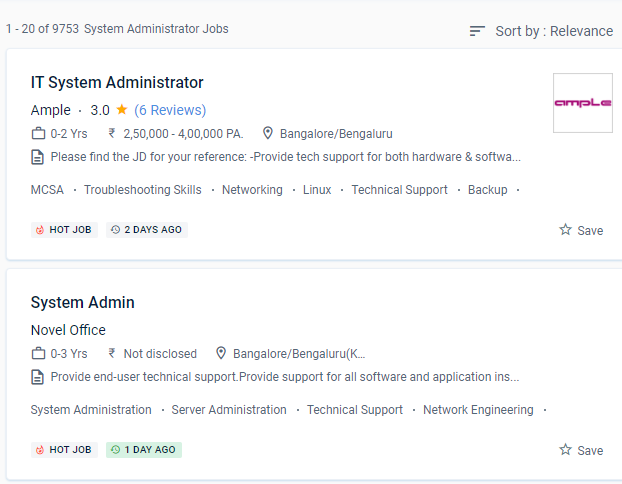System Administration Training by Experts
Our Training Process

System Administration - Syllabus, Fees & Duration
MODULE 1
- System administration introduction, policies, overview, UNIX history and basis
MODULE 2
- File systems and disks
MODULE 3
- Software installation concepts
MODULE 4
- Multi users basics, politics, policies and ethics
MODULE 5
- Automating administrative tasks
MODULE 6
- Networking
MODULE 7
- Backup and disaster recovery
MODULE 8
- DNS
MODULE 9
- SMTP, HTTP
MODULE 10
- Configuration management
MODULE 11
- Distributed computing
MODULE 12
- SNMP, monitoring
MODULE 13
- System security
This syllabus is not final and can be customized as per needs/updates





 Information technology (IT) experts execute the work of systems administration for a company.
All of the important components of the corporate computing infrastructure are managed by system administrators.
They are IT-savvy and can troubleshoot any technical issues that are causing the system to malfunction. Information security managers are given more duties when it comes to protecting sensitive data from hackers. You'll also learn how to manage and configure servers, as well as how to manage PCs, user information, and user productivity using industry tools.
They are in charge of producing IT policy recommendations for their organization. These experts may go on to become technology and IT managers in the future. It is their responsibility to ensure that computer systems and related services work smoothly. Some people excel at determining the company's technology needs as information systems managers.
To digitally connect clusters of computers, they create local area networks (LANs) and wide-area networks (WANs).
Information technology (IT) experts execute the work of systems administration for a company.
All of the important components of the corporate computing infrastructure are managed by system administrators.
They are IT-savvy and can troubleshoot any technical issues that are causing the system to malfunction. Information security managers are given more duties when it comes to protecting sensitive data from hackers. You'll also learn how to manage and configure servers, as well as how to manage PCs, user information, and user productivity using industry tools.
They are in charge of producing IT policy recommendations for their organization. These experts may go on to become technology and IT managers in the future. It is their responsibility to ensure that computer systems and related services work smoothly. Some people excel at determining the company's technology needs as information systems managers.
To digitally connect clusters of computers, they create local area networks (LANs) and wide-area networks (WANs).



















































































